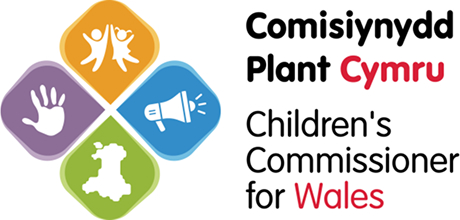A pledge from the Children’s Commissioner, Sally Holland:
“I will meet with all Regional Partnership Boards during the 2021-22 financial year to follow up on this piece of work, specifically to check in on progress against the following recommendations. I will invite young people to also meet with the Boards so that they have the opportunity to scrutinise each Board’s progress.”
Recommendations for Regional Partnership Boards:
- As part of our national response to children and young people’s mental health and well-being needs following this period of lockdown, all Regional Partnership Boards should plan and implement a ‘no wrong door’ approach to mental health and well-being which could include integrated teams, panel and hub models to provide timely joined-up help, drop in centres and plans for integrated residential provision where needed. All Boards should review their current Area Plan to ensure they are taking sufficient action to address the needs of children and young people with complex needs, and that local authorities and local health boards are truly working in partnership towards this. This should include consideration of the Plan in light of the Covid-19 pandemic and how this impacts on the remaining years of the Area Plan, and longer term strategies.
- Regional Partnership Boards must ensure they are compliant with the newly amended Part 9 statutory guidance by:
- Ensuring funding is not seen as ‘held’ by either the health board or the local authority, and that these arrangements are subject to a written agreement between partners. The funds should be owned by the whole region and all services should feel they have an equal stake
- In light of the new statutory requirement for section 12 duties to extend to Regional Partnership Boards, all Boards should review their current arrangements for engagement and coproduction with children and young people. RPBs should use my The Right Way framework for taking a children’s rights approach to working with children and young people to guide their approach, alongside the National Participation Standards. This must include the Board itself hearing directly from children and young people, and for children and young people to be empowered to shape the work of the Board.
- As part of their duty to support effective, integrated transition arrangements from children’s to adult services, Regional Partnership Boards should publish multi-agency transition protocols, if they have not already, for children and young people with learning disabilities, considering how they deliver an approach so that the current multiple and pervasive issues of cross-local authority border and cross-sector disparities in transition arrangements are integrated as far as possible.
- Regional Partnership Boards should work with the Together for Children and Young People Programme (2) to explore how they can better organise and publicise the role and work of the Regional Partnership Boards to make it more accessible to families. This should include accessible descriptions of multi-agency pathways for children with complex needs, as well as those projects which are of direct relevance to children and their families.
- Regional Partnership Boards should work with citizen and third sector representatives who work with children and young people with complex needs to make sure they are sufficiently involved in meaningful work as part of the Board, and feel fully valued as equal partners by the statutory members on it.
- Regional Partnership Boards should develop a memorandum of understanding with Public Services Boards on potential cross-over issues where these related to children and young people, which includes an agreement on how to approach those issues which would benefit from joint working between Regional Partnership Boards and Public Service Boards, such as having arrangements in place for funding applications or joint commissioning.

